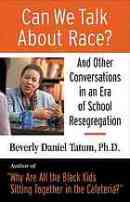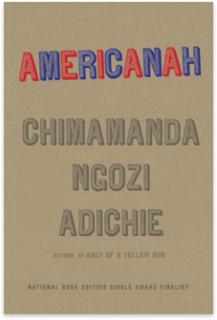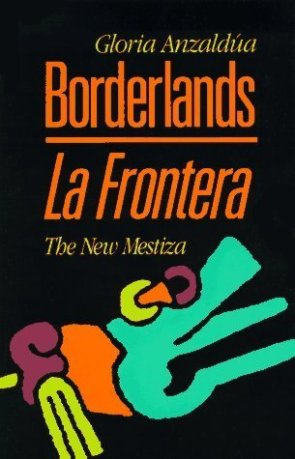Reading Race: Favorite Passages from My Favorite Books of 2013
This year has been a year for invigorating reading. Books, ranging from topics like Black men and the prison industrial complex, women and writing, Roaring 20s fiction, contemporary fiction, Toni Morrison (she deserves her own category), and meditations written by my favorite author, made their way to bedtime and me-time rituals. When deciding my favorite books of the year, I selected ones that I’ve thought about the most since reading their offerings. The books whose passages make their way into conversations with friends and students, whose teachings inspire me to be more thoughtful, radical, or more brave. The books that have grounded me, and reminded me why I am who I am, why I am doing what I am doing, or need to change how I am doing things. While I read some books that didn’t directly address race, I find it to be of no surprise that this year’s favorite books all incorporate dialogue around race.

Can We Talk About Race: And Other Conversations in an Era of School Resegregation by Dr. Beverly Daniel Tatum shifted my thinking around my role in education. The fact the she simply wrote the book reminds us the necessity to write and talk about race as educators, as well as the importance to talk about race with our students. I think all educators—regardless of the demographics of your students—should read this book, along with other works engaging in conversations around race and education.
The most important idea from this book is Tatum’s ABC’s for creating inclusive learning environments: “environments that acknowledge the continuing significance of race and racial identity in ways that can empower and motivate students to transcend the legacy of racism in our society even when the composition of our classrooms continues to reflect it. What do I mean by the ABC’s? I mean, A, affirming identity; B, building community; and C, cultivating leadership.” Read the quick, but important 130 page book to read her explanation of the ABC’s.

The only fiction book to make it to my top 3, and the only author to make it into a Beyonce song, Americanah is a novel by Chimamanda Ngozi Adiche that speaks to race, love, nationality, and familial relationships. The protagonist, Ifemelu, is a Nigerian woman who goes to America to study. Upon moving to the U.S., she not only finds herself having to adjust to American ways of living, but she also has to figure out how to navigate American race politics. She copes with her new relationship to racial politics on her personal blog. In the backdrop is the story of how she balances her Nigerian identity in America, while still feeling connected to Nigeria, and the peoples she’s left behind.
One of my favorite scenes is when Ifemelu is at a dinner party in Manhattan the day after Barack Obama becomes the Democratic Party Candidate for President. Liberalism is in the air, and there’s talk of living in a post-racist society. A black woman says she dated a white man in California, and race was never an issue. Ifemula, who has had her share of wine and white boyfriends calls nonsense, and says:
“‘The only reason you say that race was not an issue is because you wish it was not. We all wish it was not. But it’s a lie. I came from a country where race was not an issue; I did not think of myself as black and I only became black when I came to America. When you are black in American and you fall in love with a white person, race doesn’t matter when you’re alone together because its just you and your love. But the minute you step outside, race matters. But we don’t talk about it. We don’t even tell our white partners the small things that piss us off and the things we wish they understood better, because we’re worried they’ll say we’re overreacting, or we’re being too sensitive. And we don’t want them to say, Look how far we’ve come, just forty years ago it would have been illegal for us to even be a couple blah blah blah, because you know what we’re thinking when they say that? We’re thinking why the fuck should it ever have been illegal anyway? But we don’t say any of this stuff. We let it pile up inside our heads and when we come to nice liberal dinners like this, we say that race doesn’t matter because that’s what we’re supposed to say, to keep our nice liberal friends comfortable. It’s true. I speak from experience.’
The host, a Frenchwoman, glanced at her American husband, a slyly pleased smile on her face; the most unforgettable dinner parties happen when guests said unexpected, and potentially offensive, things.”

Borderlands by Gloria Anzaldua
I’ve already posted some of favorite quotes from Gloria Anzaldua’s Borderlands in a previous post, and I see no harm in reposting another one from my favorite book of 2013. Reading Borderlands was like coming home for me. In a book that legitimizes the complexities of being multilingual, multicultural, multispiritual, she writes as a whole person. She refuses to compartmentalize her multilayered self, despite having lived in a society that struggles living outside binary clauses. We are told you’re either this or that, but Gloria says she is all the above, plus more; she is mestiza, and she is whole.
“The new mestiza copes by developing a tolerance for contradictions, a tolerance for ambiguity. She learns to be an Indian in Mexican culture, to be Mexican from an Anglo point of view. She learns to juggle cultures. She has a plural personality, she operates in a pluralistic mode—nothing is thrust out, the good, the bad, and the ugly, nothing rejected, nothing abandoned. Not only does she sustain contradictions, she returns the ambivalence into something else.”
I am mestiza. I am Black, Finnish, East Indian, Scottish. I am whole. I am all the above. I am not other. I am mestiza. I am a believer of God, the earth, the womb, the sky, the water, the ancestors and spirits. I am whole. I am all the above. I am not other. I am mestiza. I am daughter, wife, teacher, friend, writer, student, auntie, sister. I am whole. I am all the above. I am mestiza. I am whole. I am not other. I have never been with a woman. I love women. I am in love with a man. I am not straight. I am not gay. I am not bisexual. I am whole. I am all the above. I am not other. I am mestiza.
** Choosing only 3 books for 2013 was not easy. Some books that would have made the list, had I done my top 5 or 10, are Dreams of My Father by President Barack Obama, Women and Writing by Virginia Woolf, My Foreign Cities by Elizabeth Scarboro, Sister Citizen: Shame, Stereotypes, and Black Women in America by Melissa Harris Perry, The Cushion in the Road: Meditation and Wandering As the Whole World Awakens to Being in Harm’s Way by Alice Walker.